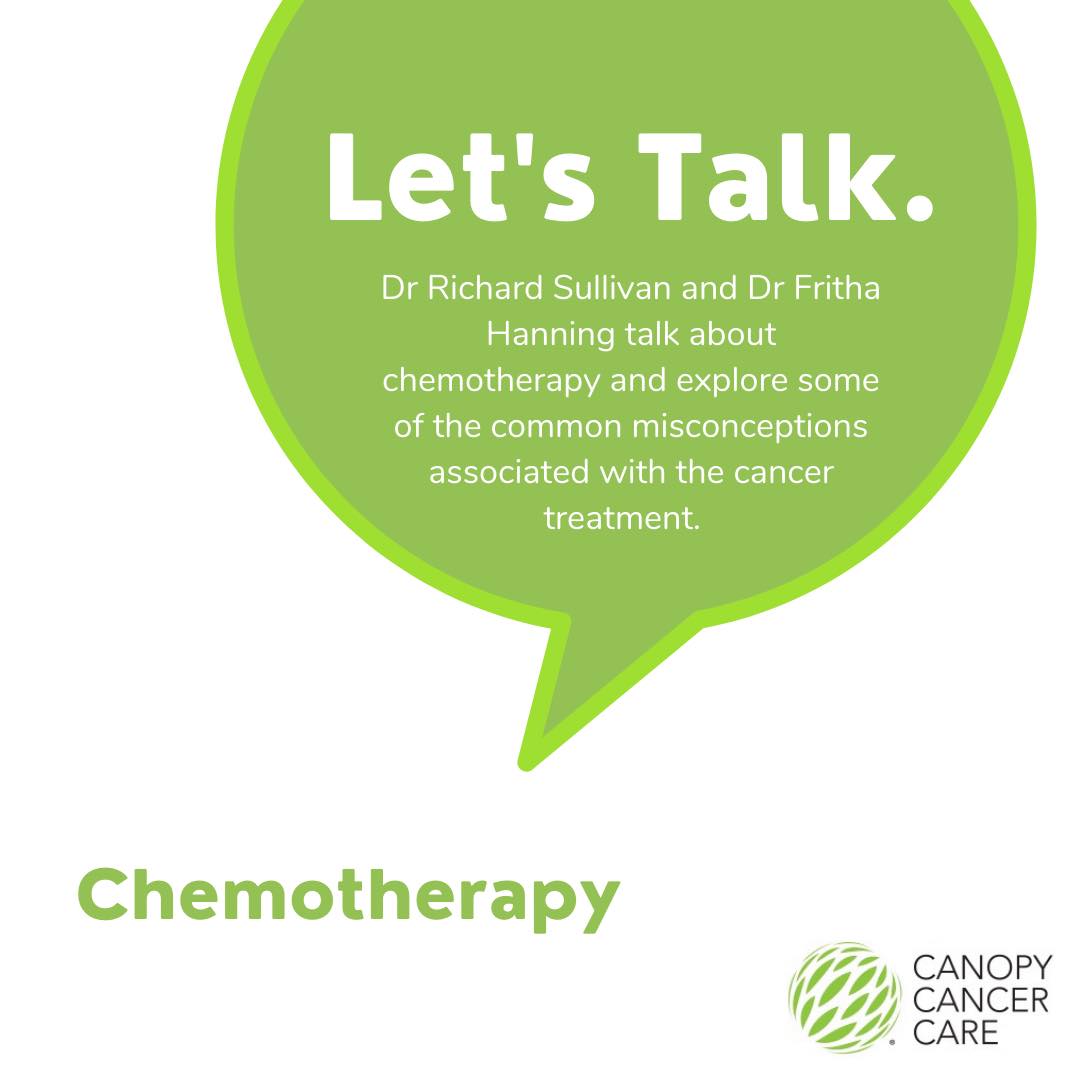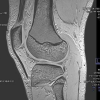
Let's Talk - Chemotherapy
“Chemotherapy has a long history and unfortunately, a bit of a bad rap,” says Dr Richard Sullivan. “But it’s important to understand that chemotherapy is now vastly different from what it used to be."
“People often associate chemotherapy with getting sick, being home and unwell, hair loss, nausea, and vomiting. Sadly, some therapies still do cause this, but some chemotherapies cause little or no nausea, some will not cause hair loss at all. They all have different levels of toxicity and because the medications that reduce side-effects are so much better, we can help our patients manage their reactions to chemotherapy, which means they have a better quality of life during their cancer treatment.”
Chemotherapy refers to the treatment of cancer using anti-cancer medication. The aim of chemotherapy is to kill the cancer cells while doing the least possible damage to normal cells. The chemotherapy medication or drug works by traveling through the bloodstream to stop or slow the growth of rapidly dividing cancer cells. This episode of Canopy TV - Cancer Explained explains that process in more detail.
Dr Fritha Hanning explains “Chemotherapy is a very big word for a huge variety of treatments. It’s a little bit like antibiotics and bacteria. When you go to your GP with an infection, they will try and use the very best antibiotic that’s suited to your infection, to try and get rid of the bacteria – they’re not all the same and they have different side effects and reasons you would use them. This is the same with chemotherapy. The side-effects you might experience with your chemotherapy could be completely different from the side-effects your neighbour had for a different type of cancer, having a different type of chemotherapy.
“I had a patient once who’d had chemotherapy back in the 1980s. When I told him he needed chemotherapy again, the first thing he said was ‘I am not having that terrible stuff ever again’. We talked about all of the changes that have occurred with the treatment over the years, especially how the supportive medicines, like anti-sickness drugs, that you take alongside your chemotherapy to help with side-effects, have changed. He went ahead with treatment, which was successful, and could not believe the difference.”
“When I first meet a patient, I tell them I’m a drug doctor,” explains Dr Sullivan. “I say that because while in my world, I’m called a medical oncologist, in fact, what I do is deliver three large groups of drugs, chemotherapy is one of those and is what oncologists are best known for. The others are targeted therapies, which is often a tablet that targets a specific area of damage, or immunotherapy which is where you are trying to improve the immune system’s ability to fight the cancer.”
“Chemotherapy is trying to damage the heart of the cell or the nucleus, it tries to destroy the bonds and break the cell down. Chemotherapy treatments have changed significantly over the past decade; we used to be very generic with the application of chemotherapy, but nowadays there are hundreds of different recipes within the chemotherapy world and each recipe is specific to a certain type of cancer, and even subgroups within that.”
“Every cancer will have a different pattern and pathway, and even at an individual level, a different pattern and pathway for what’s right for that person. Some people will just need surgery, some people will just need radiotherapy and some just chemotherapy. Some cancers require all three and it can be in any order. Again, that’s very specific to the type of cancer and what we call the stage – how advanced the cancer is, and other markers that we pick up when you’re trying to diagnose it.
“In my practice, I treat people with lung cancer. There’s a particular treatment program that I’ll only use for someone who has an adenocarcinoma, and I’ll use a different one for someone who has what we call a squamous cell carcinoma. I have different recipes I can use against those different types of cancer. What’s important is chemotherapy is very different now to what it used to be.”
Dr Hanning adds “I find one of the things people are really worried about is how chemotherapy will impact their immunity, and they ask the question ‘why should I reduce my body’s immunity when I’m trying to fight this cancer?’ What we’re starting to think is our understanding of immunity has not been quite right. There are some research studies that suggest particular types of chemotherapy, while they might lower your immunity to bacteria, actually increase your body’s immunity in terms of cancer. Also, now for some cancers, we give an immune-boosting treatment alongside the chemotherapy. These are the types of things that are going to change over the next few years.
















